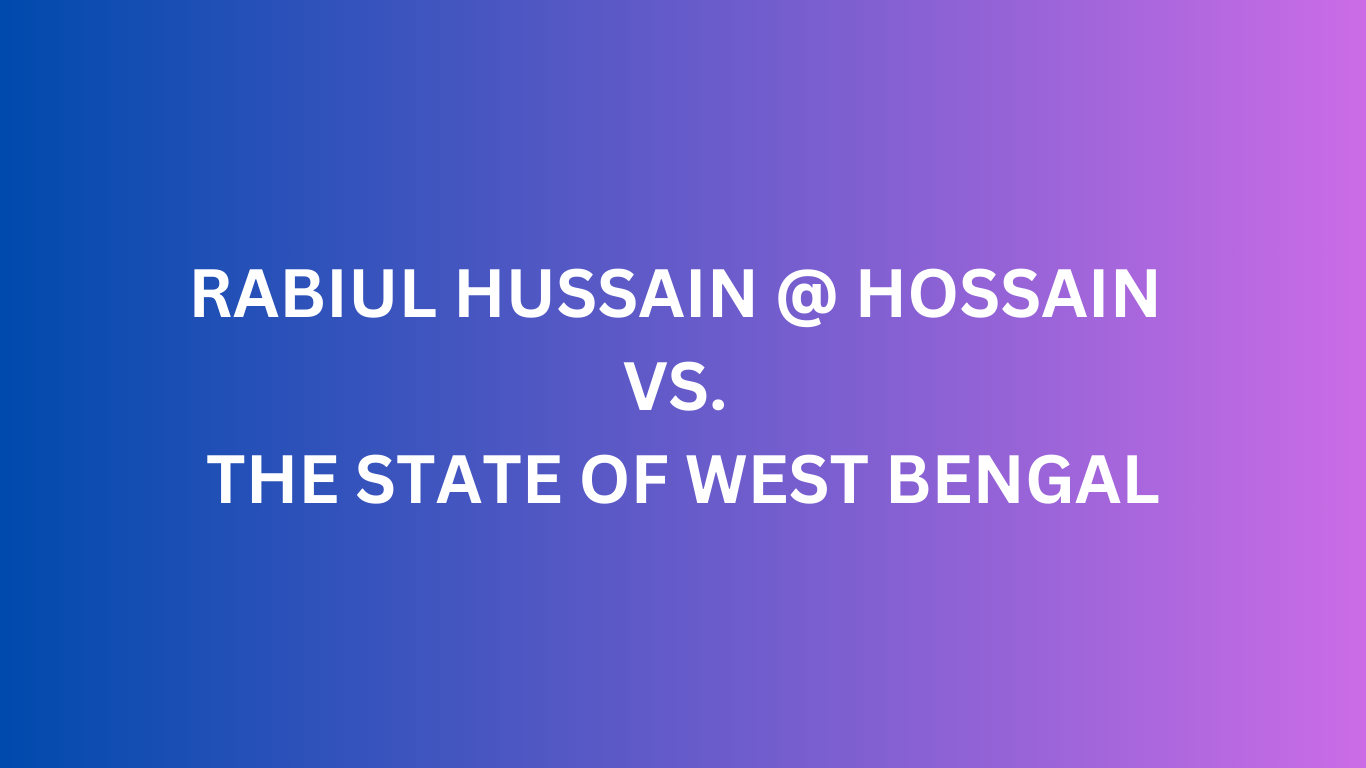Bench: HON’BLE MR. JUSTICE VIKRAM NATH
HON’BLE MR. JUSTICE PRASANNA B. VARALE
Diary No. 35005/2024
Case Title: RABIUL HUSSAIN @ HOSSAIN vs. THE STATE OF WEST BENGAL
Case details: The case relates to the petitioner who has been in prison for three years and seeks bail because he argues that the prolonged time for his trial is what he faces. The petitioner is accused of a drug offence, with the police recovering a quantity of drugs. Both the petitioner and his co-accused were denied the bail application by both the lower court and the Supreme Court of India. According to the order issued by the Supreme Court of India with the date of October 30, 2023, the court, assessing the case, reasoned that two years have not yet passed and that both sides ought not to request any delay before that period to prevent expiration. The defence contended that so far only one witness was cross-examined, whereas the prosecutor underlined that some of the delays were due to the defence’s requests for cross-examination to be postponed.This case stresses legal delays in drug cases and the conflict between the rights possessed by an accused and the gravity of drug-related crimes.
Facts: The detainee has been in prison for about three years. The accused was found guilty in a drugs case. Drugs were recovered exceeding commercial requirements. Previous attempts to get bail for the petitioner and a co-accused have been turned down by the lower court and the Supreme Court. The Supreme Court ruled on October 30, 2023, that the case ought to be decided in a maximum of two years. First, only one witness was examined though not completely and then, the defence kept on postponing cross-examination and the next day actually, they were present themselves, delays were mostly due to the prosecution’s witness being absent. The appellant’s bail was rejected as the charges were grave and the trial is still in progress. The trial court was directed to schedule the hearings every 2-3 days and to hear all the witnesses without adjournments if they are present.
Court Observed:– The court noted that the accused has been in custody for about three years and at the same time brought to the fore the concern about the ongoing trial, which has so far only partially been examined by one witness. The causative factors for delays in the trial process could not be overlooked and the court mentioned that the defendant had been frequently asking for postponements in cross-examinations. The court reiterate the copyright of the charges noting that a significant amount was involved which is quellensforderung and consequently the issue needs attention. In addition, it points out that the Supreme Court had ordered the trial to be concluded within two years of the trial, and the time frame has not expired yet thus the court was not willing to grant bail. The court stressed the need to speed up the trial proceedings and ordered the trial court to schedule hearings every 2-3 days to ensure prompt progress.
Held by Court: The court summarises that the petitioner’s bail request is rejected. It highlighted that there were serious reasons for the narcotics charges against the defendant due to the drug quantities involved and that has been reported through the prosecutor. The court observed that the case has been running for nearly three years, with just one witness in part examined. The core reason the trial was not executed in the scheduled time is the defendant’s constant appeals for the deferment of cross-examination. Moreover, the court contended that the very offensive act, which is drug trafficking, was punished by the Supreme Court to be finished in two years, the time which had not run out. Based on that, the court arrived at the conclusion that bail would be inappropriate at this juncture. The court emboldened the need to hasten up the trial proceedings and accordingly directed the trial court to set out the hearing dates within a minimum of 2-3 days to make sure the case develops without hitches. The court’s decision adequately portrays the commitment to maintain the correct and flawless administration of the justice system alongside the severity of breaking the law with respect to drugs.

